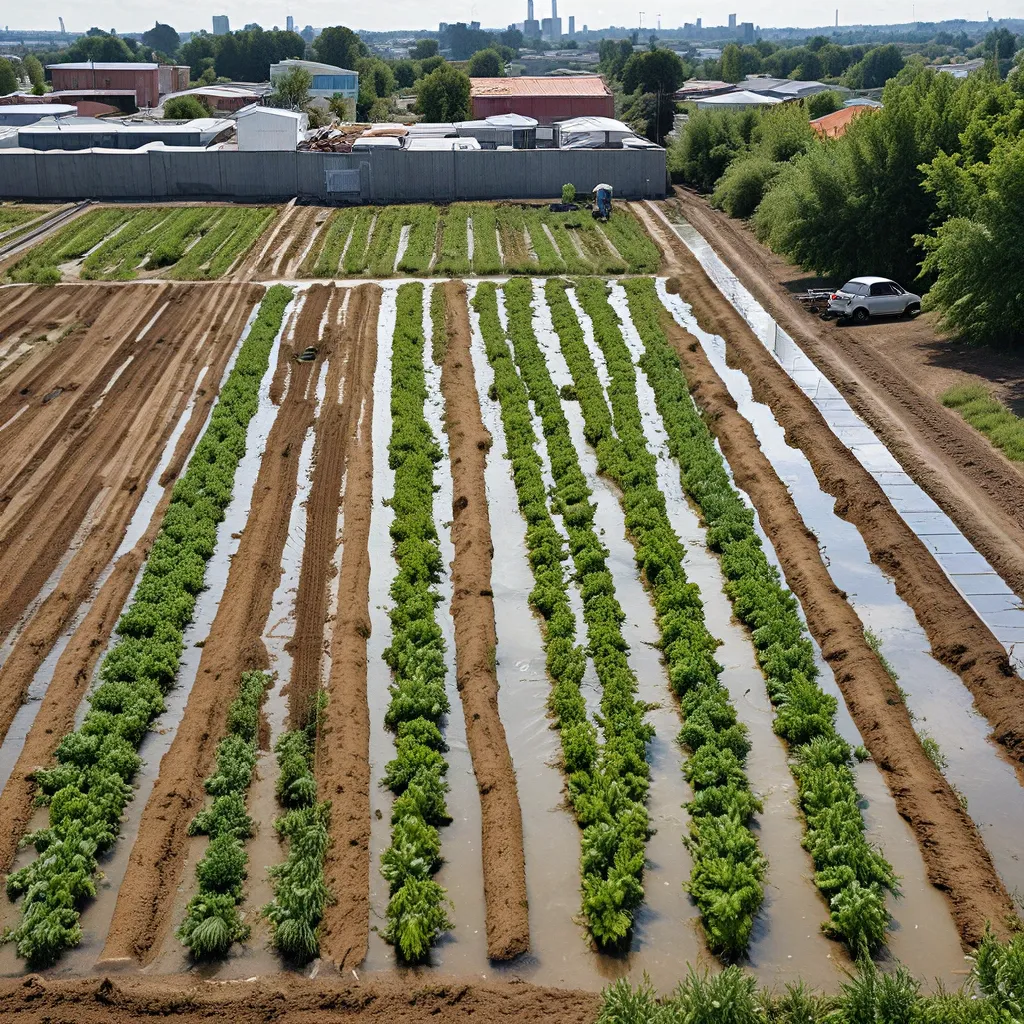
As we grapple with the pressing challenges of food and water scarcity, the concept of wastewater reuse for urban agriculture has emerged as a promising solution. In a world where freshwater resources are dwindling and population growth is on the rise, the need to develop innovative strategies that maximize resource efficiency and minimize waste has never been more critical.
The Circular Economy Approach to Food and Water Systems
At the heart of this issue lies the principle of the circular economy. Rather than the traditional linear “take-make-waste” model, a circular economy promotes a regenerative system that reduces resource input, waste, and environmental degradation. In the context of agriculture, this translates to a closed-loop system where water and nutrients are continuously cycled, minimizing the reliance on external sources and minimizing waste.
One of the key components of this circular approach is the recycling and reuse of wastewater in agricultural operations. By capturing, treating, and reusing water within the farm, we can significantly reduce the demand for freshwater resources and mitigate the environmental impact of wastewater discharge. This includes tapping into a diverse range of water sources, from on-farm wastewater to municipal wastewater and even industrial process water.
Harnessing the Power of Wastewater Recycling
The process of wastewater recycling in agriculture typically involves a few key steps. First, the wastewater is collected and treated to remove contaminants, such as heavy metals or pathogens, ensuring it meets the necessary safety standards for agricultural use. This can be achieved through a variety of treatment methods, ranging from simple filtration systems to more advanced techniques like reverse osmosis.
Once the water has been treated, it can be reused for irrigation, providing a reliable water source for crops. Interestingly, the nutrients present in the wastewater, such as nitrogen and phosphorus, can actually benefit crop growth, reducing the need for synthetic fertilizers and further enhancing the circularity of the system.
But wastewater reuse in agriculture extends beyond just irrigation. Another innovative approach is the use of managed aquifer recharge, where treated wastewater is used to replenish groundwater aquifers. This not only provides a storage option for surplus recycled water but also helps combat the declining groundwater levels seen in many agricultural regions.
Innovative Farming Techniques: Aquaponics and Hydroponics
The circular economy principles can also be applied to more advanced farming techniques, such as aquaponics and hydroponics. These soil-less farming methods rely on nutrient-rich water to grow crops, with the added bonus of integrating aquaculture (fish farming) in the case of aquaponics.
In an aquaponic system, the water from the fish tanks containing fish waste provides the necessary nutrients for the plants. The plants, in turn, filter and clean the water, which is then recirculated back to the fish tanks, creating a closed-loop system. This symbiotic relationship not only reduces water and nutrient usage but also minimizes waste and environmental impact.
Similarly, hydroponic systems use recycled water to cultivate crops without the need for soil. By carefully monitoring and adjusting the nutrient levels in the water, farmers can optimize plant growth and productivity, all while conserving precious water resources.
Challenges and Opportunities in Wastewater Reuse
While the potential of wastewater reuse in urban agriculture is undeniable, there are still challenges that need to be addressed. One of the primary concerns is the risk of contaminants entering the food chain, which requires robust treatment methods, regular water quality monitoring, and adherence to safety guidelines.
Overcoming these challenges will require a multifaceted approach, involving collaboration among various stakeholders, including governments, private sector, research institutions, and extension services. Governments can play a crucial role by creating supportive policies, providing financial incentives for farmers to adopt water recycling systems, and regulating the safe use of recycled water.
Public-private partnerships can also be instrumental in advancing water recycling in agriculture by sharing the risks, costs, and benefits among different stakeholders. Research institutions and extension services can contribute by developing more efficient water recycling systems and educating farmers about their operation and benefits.
Embracing the Circular Water Economy in Agriculture
As we strive to ensure food and water security in the face of growing population, changing dietary patterns, and climate change, the circular economy approach to water management in agriculture offers a promising path forward. By turning waste into resource, we can not only conserve freshwater resources but also reduce the environmental impact of wastewater discharge.
While the journey towards a circular water economy in agriculture may not be without its challenges, the potential rewards are immense. Increased water security, enhanced food production, and environmental sustainability are just a few of the benefits that await us.
As we continue to explore the frontiers of this field, I encourage you to stay informed, engage with the latest research, and consider how you can contribute to this vital effort. Together, we can create a more resilient and sustainable future for our food and water systems.
Alpha Wastewater is at the forefront of providing innovative wastewater treatment solutions to help close the loop on food and water security. Explore their services and see how they can assist your urban agriculture initiatives.